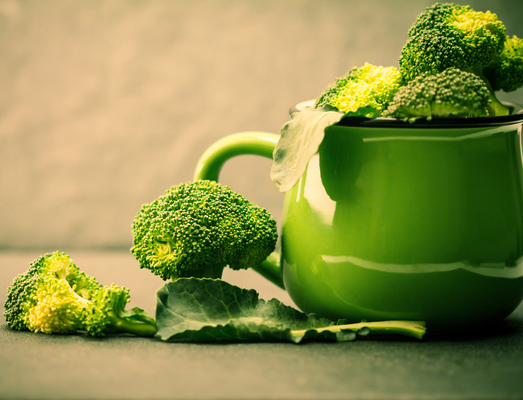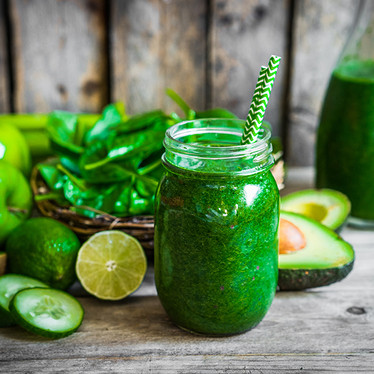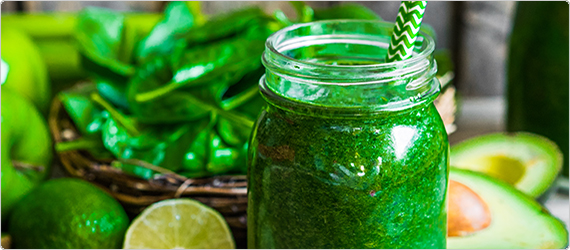There’s a lot of hype these days around the concept of body alkalinity and its effect on our health. Many proponents of the theory talk about the importance of consuming a high proportion of alkaline or alkalising foods and limiting or avoiding acidifying foods altogether. But what does that really mean? And which foods are on the good or bad list?
Origins of the Alkaline Diet theory
The acid/alkaline hypothesis is based on the effect of various foods on pH of the body’s urine (or sometimes blood). Blood will always remain very close to a pH of 7.4 through homeostatic means; any deviance from this will result in death. However, the pH of urine is known to change according to diet, often quite drastically, due to the effect of minerals and various metabolites on urine. It was observed in rabbit studies by biologist Claude Bernard in the 1800s that a plant-based diet produced alkaline urine, whereas a carnivorous one produced more acidic urine. It was then discovered that it could also alter human urine in the same way.
This idea developed into the concept of foods that produce acid or alkaline ‘ash’ on combustion, and the theory that they would do the same on ingestion.
Doctors and authors such as Robert O. Young later developed the concept in books such as Young’s “The pH Miracle”, arguing that an alkalising diet could aid weight loss, help prevent cancer and osteoporosis, and assist with myriad other health disorders. Young espouses a plant-based diet, with some fish, eschewing meat and dairy due to their acidifying effects.
Alkaline food and an alkalising diet is now one of the most well-known eating philosophies in natural health, making its way into a variety of more succinct diet plans without always being considered a dietary plan in itself.
How does it work?
Whilst debate rages about the value of alkalising foods in the scientific world, there is some evidence for its efficacy in improving overall health. The effect is believed to be due to the minerals contained within the soil (and pH of the soil itself) and foods being consumed, with those higher in magnesium, calcium, potassium and bicarbonate being more ‘alkaline’. An increase in sodium and chloride in the modern diet since the industrial revolution, coupled with decreased potassium and bicarbonate, is blamed for increasing states of acidosis, which the alkalising diet may help remedy.
So what is alkaline food?
 Essentially, foods that produce ‘acid ash’ are considered acidic, and those that produce ‘alkaline ash’ are alkalising. The emphasis in dietary terms is generally placed on eating a predominance of alkalising foods with minimal acidic ones – an 80/20 balance is often cited as a good target. Foods that are considered alkalising are vegetables, fruit and fish. Any of these are fair game on the dietary plan. Foods that should be avoided or kept to a minimum, i.e. acidifying ones, are meats (especially red meat), dairy, sugars, and processed foods.
Essentially, foods that produce ‘acid ash’ are considered acidic, and those that produce ‘alkaline ash’ are alkalising. The emphasis in dietary terms is generally placed on eating a predominance of alkalising foods with minimal acidic ones – an 80/20 balance is often cited as a good target. Foods that are considered alkalising are vegetables, fruit and fish. Any of these are fair game on the dietary plan. Foods that should be avoided or kept to a minimum, i.e. acidifying ones, are meats (especially red meat), dairy, sugars, and processed foods.
There is often confusion around foods that are generally considered to be acidic as well. The biggest of these is the citrus fruit family – and lemon in particular. Because of their high citric acid content and sour, acidic flavour profile, lemons are often thought of as acidic foods and assumed to be acidifying. However, as they produce alkaline ‘ash’, they are allowed on the diet and considered to be particularly good at alkalising.
Some other foods worthy of special mention are those that do an exceptional job of alkalising the body. Besides lemons, these include apple cider vinegar, chlorophyll and green superfoods such as spirulina and barley grass, and other green vegetables such as broccoli.
Water is also gaining attention in the world of acid/alkaline food, with many people now seeking out particularly alkaline water. Mineral water with high silica content is considered desirable, but for those who cannot access it, there are numerous water filters available that alkalise the water whilst reducing heavy metal contaminants and chlorine. Likewise, mineral drops are available that can be added to water to help increase its alkalinity.
HealthPost carries a wide range of alkalising foods, including green superfoods, chlorophyll and others that can be added to smoothies and foods to increase alkalinity, as well as alkalising water jugs and drops.
We’d Love Your Feedback
Do you have any experience with Alkaline Diet?
What are your favourite types of alkalising foods?


